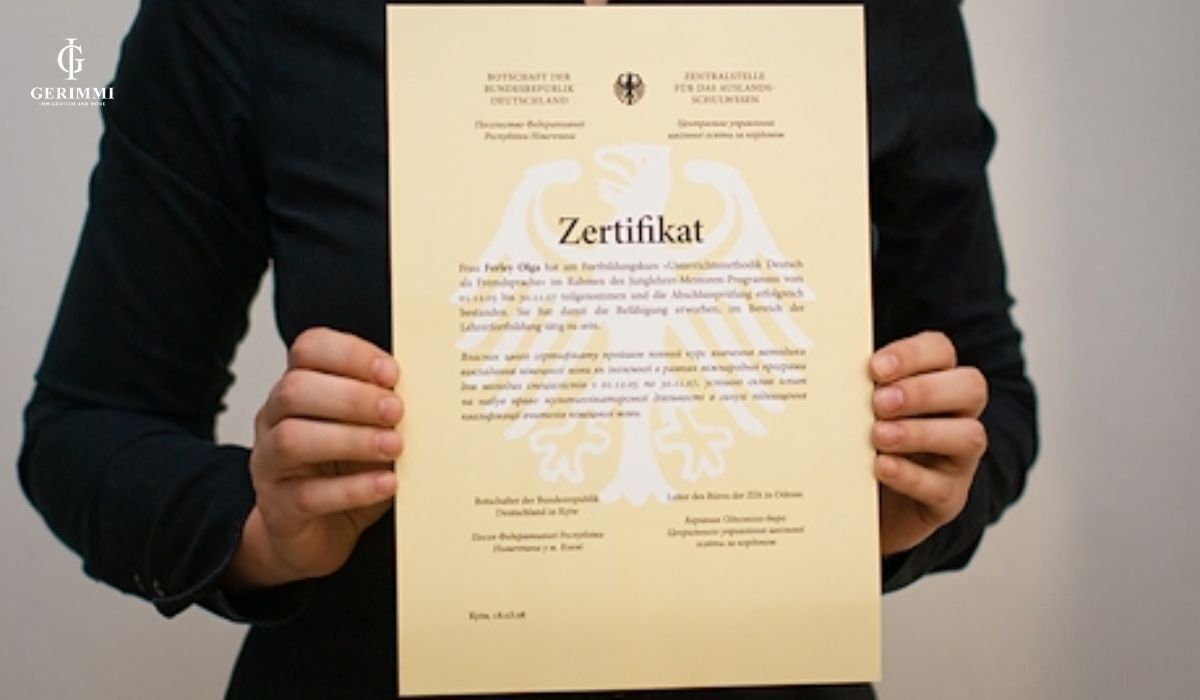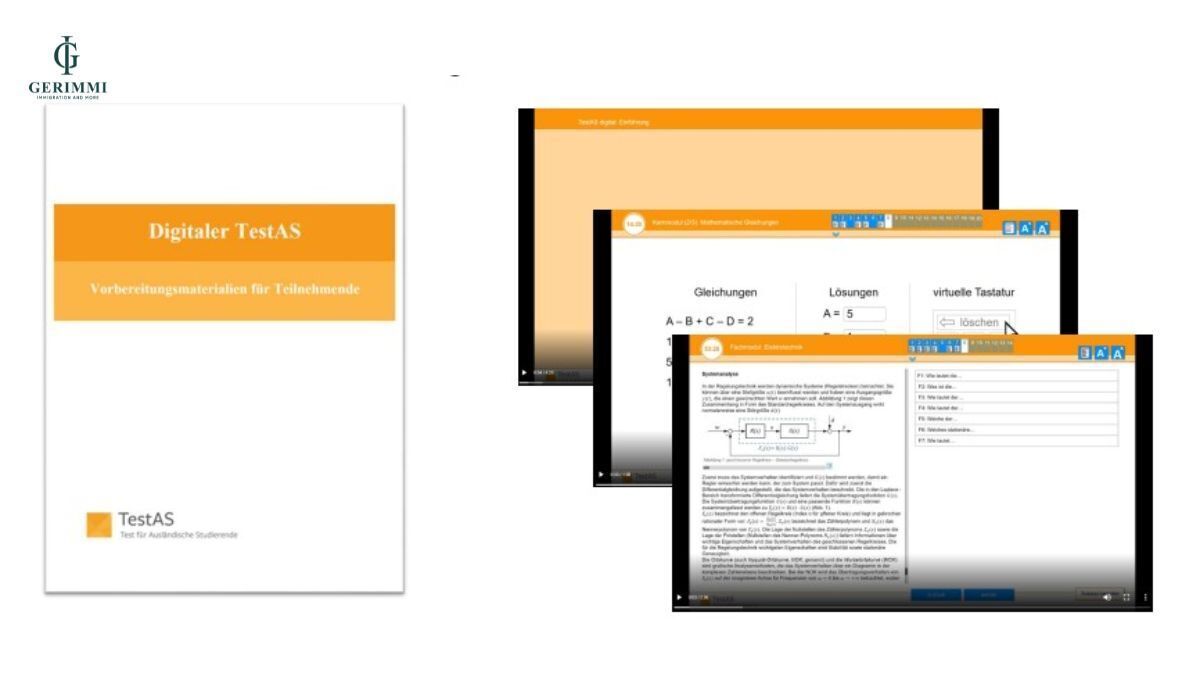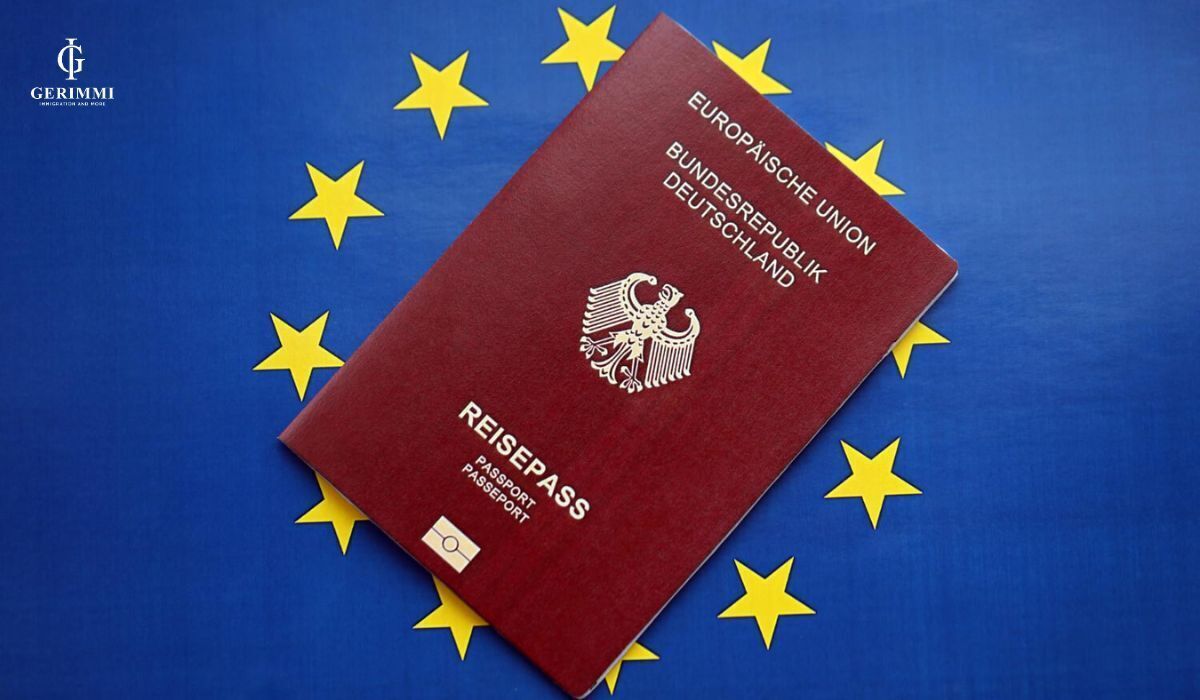2025 is the ideal time to plan to study in Germany, thanks to its open education policy, low tuition fees and post-graduation settlement opportunities. With high-quality education, German degrees are globally recognized, creating a great advantage for Vietnamese students in the international labor market.
I. Why choose to study in Germany in 2025?
- Free public university tuition
Most public universities in Germany are tuition-free for international students. Students only pay an administrative fee per semester (~250–350 EUR), which is a significant cost savings compared to other countries. This reduces financial pressure and allows students to focus on their studies.
- Job and settlement opportunities
Students are allowed to work 120 days/year. After graduation, you can apply for an 18-month visa to stay and find a job. If you work steadily and pay taxes, you can move towards permanent residency after 5 years. This is a valuable opportunity to build a career and a stable life in Europe.
- Top quality education
Germany is home to many prestigious universities such as TU München, Heidelberg, LMU Munich… with training programs focusing on practice, research and high-tech application. Graduates from Germany are highly appreciated by employers for their independent thinking ability and solid professional skills.
- International learning environment
Germany welcomes over 350,000 international students each year. You will study and interact with friends from all over the world in a multicultural, modern and safe environment. This not only helps expand international relationships but also trains your ability to adapt and communicate in a global environment.
II. Academic requirements for studying in Germany 2025
To be eligible to study in Germany in 2025, students need to meet the academic requirements appropriate to the training program they are applying for. These conditions help ensure that you are capable of studying in the rigorous but very professional academic environment in Germany.
1. Academic requirements for bachelor's programs
- Graduated from high school properly
You must have completed grade 12 in Vietnam and meet the requirements for admission to a domestic university according to the regulations of the Ministry of Education and Training. This proves that you have the basic knowledge to continue your university studies in Germany.
- GPA above average
Many schools require a minimum GPA of 7.0 or higher (on a 10-point scale). The higher the score, the greater the chance of being accepted and exempted from preparatory school. Additionally, a good GPA will also make your application more competitive in the admissions process.
- Eligible for admission or preparatory study
If you have not completed 4 semesters of university in Vietnam, you need to attend a university preparatory course (Studienkolleg) in Germany. If you have completed at least 1 year of university in your country, you can apply directly to some suitable majors. Choosing the right path will help you save time and increase your chances of getting a visa.

2. Academic requirements for master's programs
- Have a Bachelor's degree in the right field
You need to have graduated from university with a major that is relevant or related to the field you intend to study for a Master's degree in Germany. The compatibility of the study program is an important criterion for admission. Some universities may accept applications from related fields if you have relevant experience.
- GPA from 7.0 and above
Most universities in Germany require international students to have a GPA of 7.0 (equivalent to 2.5/5 in the German system). Some more competitive programs may require a higher GPA. A high GPA can also increase your chances of getting scholarships and credits exempted.
- Some majors require GRE/GMAT
For majors such as Business Administration, Finance, Economics, etc., many schools require additional GRE or GMAT scores to assess in-depth academic ability. Having good scores on these exams significantly increases the chances of being admitted to top schools.
III. Language certificate requirements for studying in Germany 2025
When studying in Germany in 2025, a foreign language certificate is a mandatory factor to help you qualify for study and visa application. Depending on the training program you choose, whether in German or English, the proficiency requirements will be different.
1. Programs taught in German
- Level B2–C1
Most German language programs require students to have a B2 level or higher, while some top programs or universities may require C1. This level ensures that you can understand lectures, write essays and participate effectively in academic discussions. Studying for C1 also helps you connect and communicate more easily with local lecturers and students.
- Recognized Certificate
Recognized certificates include TestDaF, DSH, Goethe-Zertifikat C1, telc Deutsch C1 or ÖSD. Choosing the right certificate for the school's requirements will help your application stand out from the start. You should carefully check the admission requirements of each school to determine the right certificate to prepare.
- Learn the language before going.
Many Vietnamese students choose to study German in Vietnam to level B1 or B2, then go to Germany to continue studying at C1. This is a popular route, helping you save costs and get familiar with the language before starting the official study program. Studying in Vietnam also helps you build a solid foundation and be more confident when entering the German environment.

2. Programs taught in English
- IELTS or TOEFL
If you are studying an English-taught program in Germany, you are required to have an international language certificate such as IELTS or TOEFL. This is a mandatory requirement for admission and visa application. Some schools also require additional evidence of academic writing skills such as Academic Writing.
- Minimum score
The minimum IELTS score is usually 6.0-6.5, TOEFL from 80–90 points depending on the school and major. Some top schools may have higher requirements, especially for graduate programs. A higher score combined with English skills proves that you are capable of studying immediately without taking a language course.
IV. Essential certificates and exams for studying in Germany 2025
1. APS certificate
- Required for Vietnamese students
APS is a certificate issued by the German Embassy after verifying academic records and interviews. This is a mandatory requirement for all Vietnamese students who want to study in Germany. The sooner you get APS, the sooner you can proceed with the next steps in your study abroad application.
- Check the authenticity of your degree
The APS process is to verify the accuracy and equivalence of Vietnamese qualifications compared to the German education system. Without an APS certificate, you cannot apply for a student visa. Preparing your APS application carefully will reduce the possibility of your application being returned or having to spend time editing.
- Direct interview in Hanoi/HCMC
After submitting your application and being accepted, you will attend a face-to-face interview with an APS representative. Preparing your answers carefully and understanding your major are important factors to pass this round. The interview results greatly determine whether or not you will be granted an APS.
2. TestAS exam (for bachelor's programs)
- Academic Aptitude Test
TestAS is a standardized test that assesses logical thinking, information processing and university study ability in Germany. It is a tool for universities to select international students with good academic potential. TestAS results are widely accepted in the Bachelor's admission system.
- For Bachelor's degree
Students who have not completed at least 4 semesters of university in Vietnam often need to take the TestAS to be eligible for admission to a bachelor's program in Germany. This is especially important if you have not completed a university preparatory program (Studienkolleg). Knowing the test schedule and registration form for the TestAS will help you plan your studies and exams effectively.
- The exam can be taken in English or German.
TestAS is available in both languages, you can choose based on your language ability. However, if you intend to study in German, you should take TestAS in German to match your application. Choosing the right language helps reflect your true ability.

3. GRE/GMAT (for master's programs in economics/management)
- Required for Economics
For Master's programs in Economics, Finance, and Management, some German universities require students to submit GRE or GMAT results. This is a condition to assess the candidate's mathematical, analytical, and strategic thinking abilities. Early preparation gives you more time to review and choose the most suitable exam.
- What are GRE and GMAT?
GRE (Graduate Record Examination) and GMAT (Graduate Management Admission Test) are standardized tests widely used around the world to assess academic ability at the graduate level. Choosing the right test depends on the program you intend to study. The higher the score, the more your application will stand out to the admissions committee.
- The higher the score, the greater the chance
While not all schools require it, having a high GRE or GMAT score will help you stand out from other applicants. It also shows that you are prepared and have a strong academic record. Many schools also use these scores to award scholarships or tuition waivers.
V. Financial proof for studying in Germany 2025
Financial proof is an important step when making an application.Study in Germany 2025, helping you prove your ability to pay tuition and living expenses in Germany. Preparing this section carefully will not only help you get a visa smoothly but also create trust with the school when considering scholarships or financial support.
1. Blocked bank account in Germany
- Minimum amount
Students need to open a blocked account (Sperrkonto) with a balance of between 11,208 EUR and 11,904 EUR for one academic year. This is the amount set by the German Embassy, ensuring that you have enough money to sustain yourself in Germany. This amount may change with inflation, so you should check the latest update before submitting your application.
- Bank fees
Opening a blocked account will incur an annual service fee of 60–140 EUR depending on the bank you choose. Choosing a bank with reasonable fees will help you save on overall costs when preparing to move to Germany. In addition, transferring money to this account also requires you to plan ahead to avoid stress about the deadline for opening the account.
- Open an account properly
You need to open a blocked account through an approved bank such as Fintiba, Expatrio, or Deutsche Bank. The account opening application requires a contract, a scanned copy of your passport, and proof of address, so you should prepare a list before registering.

2. Other forms of financial proof
- Government Scholarship
If you receive a DAAD, Erasmus+ or university-specific scholarship, you can use it instead of a blocked account. This is the optimal way to prove your finances without having to deposit money in Germany while still ensuring your stay. The scholarship also helps you reduce financial pressure and focus more on studying or doing in-depth research.
- Financial commitment letter
A letter of commitment (Verpflichtungserklärung) from a guarantor in Germany, such as a relative or friend with legal residency, can also be used as an alternative to a blocked account. This form is issued by the German Foreigners' Office (Ausländerbehörde) and represents your financial commitment. You need a guarantor with a sufficient income and a clear profile to ensure the form is approved.
- German Sponsorship
In case of relatives who are German citizens or permanent residents, they can directly guarantee with bank documents in Germany. This is the strongest form of proof, highly appreciated by the Consulate. However, the sponsor also needs to sign a legal commitment and prove his/her financial capacity to the visa authority.
VI. Student visa application documents for Germany 2025
- Step 1:Visa booking & fees
You need to make an appointment at the German Embassy/Consulate and prepare to pay a visa fee of about 75 EUR. Booking early will help you avoid having to wait too long during peak periods. Visa fees can change according to the exchange rate, so you should prepare a little extra to avoid shortages.
- Step 2:Personal profile
Include a passport valid for at least 12 months, a recent 3.5x4.5 photo, a visa application form and other personal documents as instructed. Accurate personal documents help the consulate process quickly and avoid being returned. Make copies in case of loss or need for additional information.
- Step 3:Academic record
Admission letter, APS certificate, foreign language certificate and transcript are documents that need to be translated and notarized. This is an important part to prove that you are really studying in Germany, so you need to check carefully. You should write a clear motivation letter to increase the persuasiveness of your application.
- Step 4:Financial Profile
Include a blocked account confirmation or other form of financial proof with a guarantee if applicable. A complete financial profile will increase the chances of a successful visa issuance. You should prepare both the original and a copy for comparison if the consulate requests a check.

- Step 5:Health insurance
The health insurance contract for international students must be certified by Germany and is valid during the first period of studying in Germany. Compulsory health insurance gives you peace of mind during your studies and living in Germany. You should buy a standard international insurance or buy it when you arrive in Germany to protect both your health and your visa application when the traditional level is not required.
- Step 6:Apply and interview
After submitting a complete application, you may be invited for a short interview via Zoom or in person to verify your information. Being well prepared with answers about your study purpose, finances and post-graduation plans will help you confidently pass the interview. Note that the German Consulate interview usually focuses on your study purpose and long-term plans.
- Step 7:Get visa
Visa results are usually available after 6-12 weeks. If approved, your passport will be returned along with your long-term visa, allowing you to prepare your luggage to travel to Germany on the day of your studies.When receiving your visa, you should carefully check the information and date of issue on the visa before planning to buy plane tickets and arrange accommodation.
VII. Important notes for studying in Germany 2025
- Prepare early
Planning 12-18 months in advance will give you enough time to study for a language, take certification exams, and arrange your finances. Early preparation will also help you attend the winter or summer semesters. A suitable schedule will help you avoid stress near the application date and increase your visa approval rate.
- Research the industry/school
Research the study program, tuition fees, scholarships and specific requirements of each school to make the right choice. Choosing the right major not only increases your chances of getting a visa but also helps you have a clear career direction when in Germany. You should refer to information from the official university website and reputable forums to have a comprehensive view.
- Prepare documents carefully
Inaccurate or incomplete documents are likely to be returned or requested for additional information. Make a checklist and have a professional or friend check to make sure all documents are valid. Being well prepared will help you avoid wasting time waiting for additional documents to be returned, especially when the application deadline is not long.
- German Life Skills
Investing in learning about culture, immigration laws, living costs and communication will help you integrate easily. You should learn about labor laws, insurance, taxes and social rules in Germany so that you are not shocked when you actually live. Knowing these things in advance will help you feel more confident and save time in the initial adaptation.
Conclusion
Studying in Germany in 2025 is a wide open door for young people who want to access high-quality education, affordable tuition fees and career development opportunities in Europe. However, this journey requires you to have thorough preparation from academic qualifications, foreign language certificates, finances to visa procedures.

